Should You Feed a Kitten Adult Food
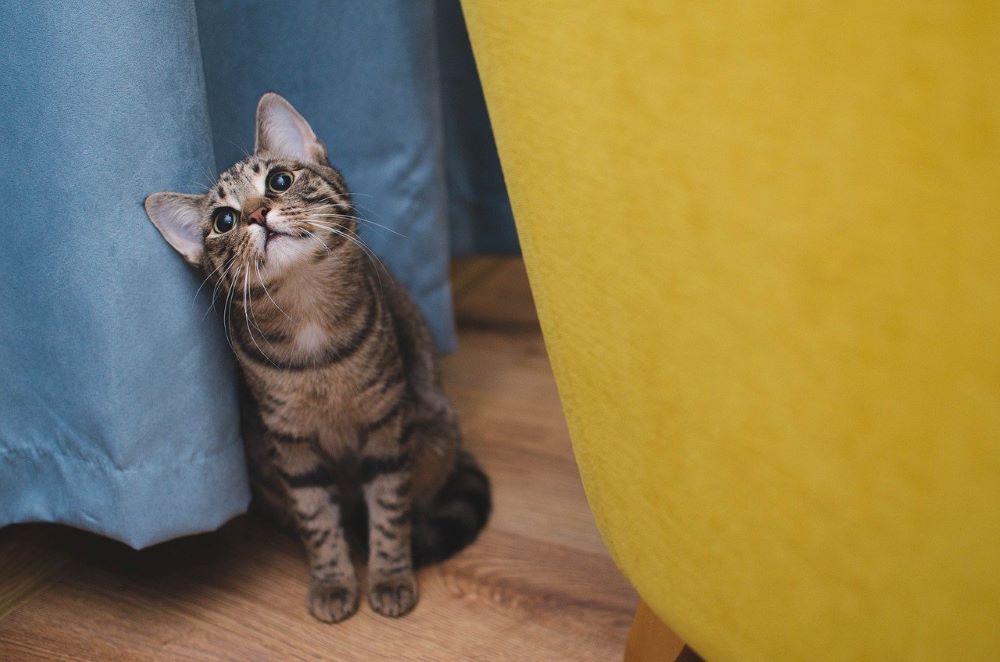
Even the most hardened individuals cannot help but to melt a little when presented with a cute kitten, be that just a photo or cuddling a little bundle of fluff directly.
There are countless materials and resources dedicated to kittens, from websites (such as this one!) to retail stores, but with such a dazzling array of information, how do you know the right thing to do when it comes to feeding your gorgeous new kitten?
This article is going to explore the nutrition element in much more detail and explain why it's so important that every kitten receives the right food during growth.
In short, we'll be looking at why kittens shouldn't be eating adult cat food.
Let's start by exploring what makes a kitten, well… a kitten!
All About The Kitten Lifestage
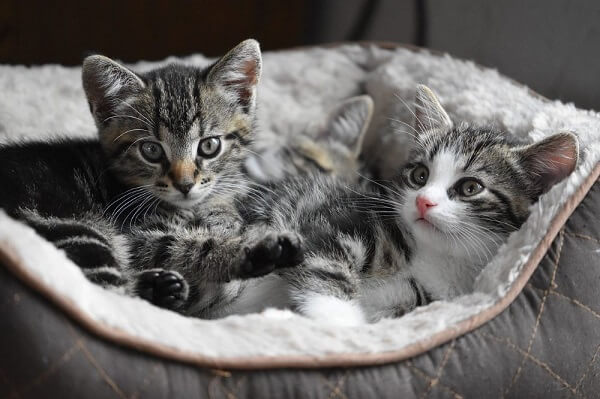
The kitten lifestage is a period of rapid, intense growth and demands unique nutrition.
There are three well-defined, but arguably four less well-accepted life stages, that all cats experience over the course of a lifetime. These are as follows:
- Growth
- Adult
- Senior
- Geriatric
It is the older cat / geriatric stage that is still considered quite controversial in some circles, but today we're focusing on the growth or kitten stage.
This stage begins at birth, ending when growth ceases at approximately 10 to 12 months of age.
For the first 4 weeks of life, kittens should be able to obtain all of their nutritional requirements from their mother's milk. At about 4 weeks of age, weaning starts to occur and kittens should be slowly introduced to solid food, with more wet or canned food than dry food over the next 4 weeks. This is because little kitten teeth can struggle with dry food and canned or wet food is easier to eat.
Also Read: Cat Giving Birth: What You Need To Know
By the time that kittens have reached 2 months of age, they should be fully weaned and eating only commercially prepared kitten food; either wet or dry or a combination of both.
During the first 24 weeks of life, kittens experience their fastest growth period and, although they may appear to be fully grown by the time they reach 6 months of age, they are still developing on the inside.
In fact, during their first year of life kittens, will increase their body weight by up to 40 to 50 times that when they were born. This is why it's so important to keep feeding a kitten formula until all of this growing stops.
Feeding Kittens – The Nutritional Essentials For Growth
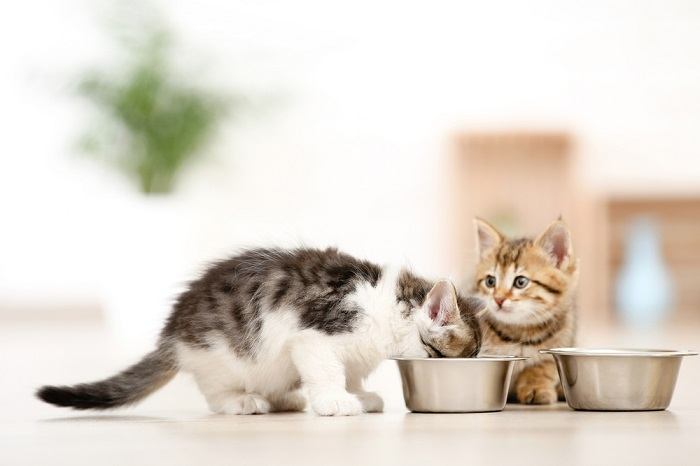
Protein is the main building block essential for growth. We already know that cats, as obligate carnivores, have a unique requirement for protein, but this is even more important for growing kittens. Protein is fundamental for the formation of muscle, skin, fur, nails, and internal organs, as well as all cellular growth, repair, and regeneration. Also, it forms the basic structure of hormones, enzymes, and antibodies required for a healthy immune system.
Also Read: The 8 Best Kitten Foods
In short, protein is essential for life!
Amino acids are the basic building blocks of protein molecules and they can be divided into both essential and non-essential categories. Essential amino acids must be provided in food, as the body is unable to create them and for both kittens and cats these food sources must be animal-derived.
However, there is no single food or protein source that will contain all of the amino acids that cats and kittens must obtain from their diet. This is why a correctly balanced kitten diet will generally contain protein from a variety of different sources unless appropriately-formulated nutritional supplements are added instead.
Little kittens must have a minimum amount of 30% protein in their diet on a Dry Matter (DM) basis.
This means that when all the water is removed from the food, the dry ingredients should provide a minimum of 30% protein.
Adult cats, on the other hand, require a minimum of 25-26% protein on a DM basis, depending on whether the food is formulated in Europe or the USA. Please remember that these are the minimum recommended nutritional requirements for protein, but there are many cat and kitten foods on the market with much higher percentages of proteins.
Kittens also have high fat and energy requirements.
Another key nutrient for growing kittens is fat and the main reason for this is due to its energy capacity. Fat contains 2.5 times more energy than either protein or carbohydrates and young, rapidly, growing kittens need much higher levels of energy than adult cats to fuel all that growth.
One of the advantages of this high caloric density means that smaller portion sizes can be formulated to ensure sufficient amounts of energy are contained in quantities of balanced nutrients that won't overwhelm small stomachs. Approximately 30% of kittens' energy requirements should actually be provided through protein.
The omega 3 fatty acids EPA and DHA, whilst not considered specific essential nutrient requirements for growing kittens, are in fact critical for optimal brain and retinal function. A kitten food containing appropriate levels of both DHA and EPA is therefore recommended for optimal growth.
In addition, fat is a vital factor when it comes to taste or palatability and is also used to help absorb and store fat-soluble vitamins, such as pre-formed vitamin A. Vitamin A, just like the fatty acid Arachidonic Acid, is another essential dietary nutrient for all kittens and adult cats.
Ingredient quality is also fundamental for appropriate growth.
Aside from the different types of nutrients that must be provided to growing kittens, the actual source and the quality of that food source is fundamental for appropriate growth.
Kittens must be able to easily access the nutrients contained within their food once it starts to get broken down (or digested) and metabolised in the body. This means that the kitten food should be formulated to ensure sufficient bioavailability and digestibility.
In turn, this means that the diet should be of a high enough quality to be easily digestible.
Good indicators of quality in cat food are when the type of protein listed on the label comes from an animal and an easily recognisable source e.g. salmon, lamb, chicken versus vegetable or cereal-based proteins.
Whilst the latter also contains amino acids that may help to build the profile of nutrients required to create a complete and balanced food, we know that cats require animal sources for their essential amino acids.
Another indicator of high quality is the label.
Commercially prepared kitten food should always have a sentence that states 'Meets the nutritional requirements of kittens established by the American Association of Feed Control Officials (AAFCO)' or 'Complete and balanced nutrition for kittens based on AAFCO feeding trials'. If in Europe, the label would refer to FEDIAF, which is the European pet food industry association, instead of AAFCO.
What About Calcium And Phosphorous?
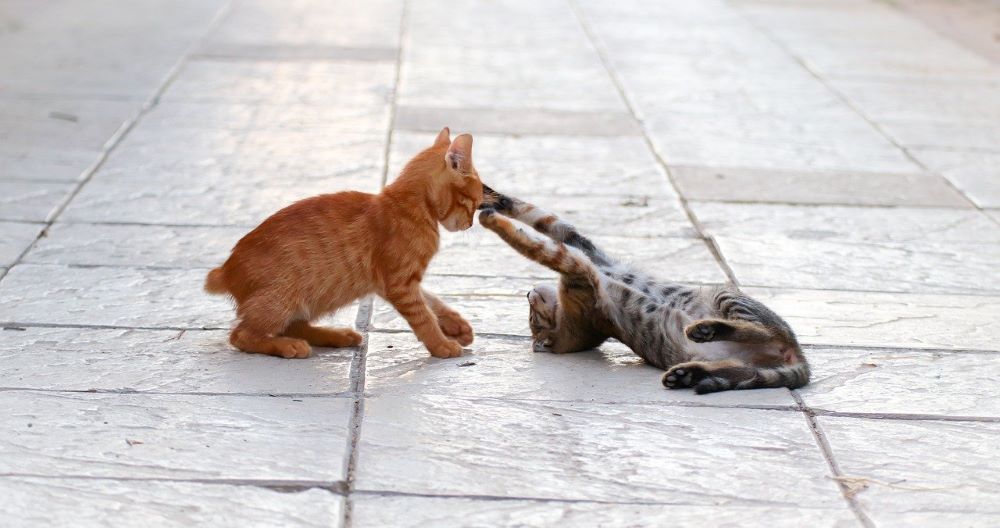
Between rapid growth and rambunctiousness, kittens have very high energy demands.
Growing kittens have to build bone and muscle very rapidly, so they require increased levels of calcium and phosphorous in their diets compared to adult cat foods. It's important to remember though that the ratio of both of these minerals is very sensitive and needs to be kept within a narrow margin of safety.
Commercial kitten foods will have formulated the diet to meet these nutritional requirements for growth and consequently, supplements should never be added. If calcium supplements are added to a commercially prepared kitten food there is a large risk of inadvertently causing bone, tooth, and other growth deformities.
Final Thoughts
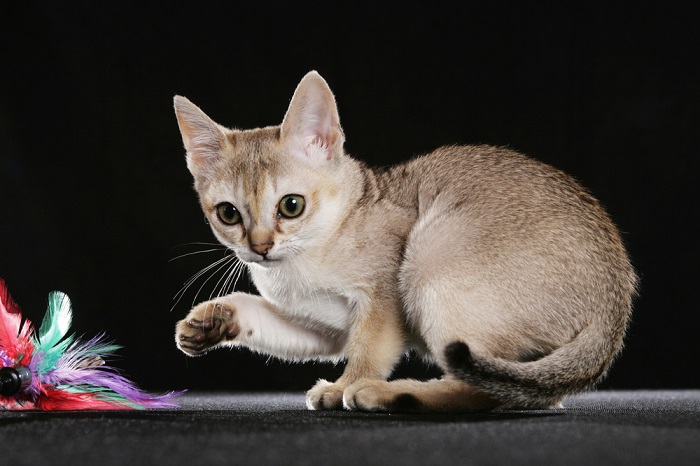
Kittens have an awful lot of growing up to do in a very short space of time and it is because of this that they shouldn't be given adult or indeed senior cat food for the first year of life. They are actively growing throughout these twelve months and have specific requirements for increased levels of protein, energy, and minerals such as calcium and phosphorous.
In addition, all the ingredients in kitten food should be of high enough quality to ensure that the nutrients are easily digestible, as well as being correctly balanced and in proportion to ensure optimal growth.
Last but not least, always ensure plenty of available fresh water. This is the most vital nutrient for cats of all ages!
Frequently Asked Questions
When can kittens eat adult cat food?
It's only when your cat is one year old, it's time to switch to a maintenance formula adult cat food.
Can kittens eat adult wet food?
It's important to remember that kittens have different nutritional needs than adult cats. Therefore, feeding them adult wet food formula may not provide your kitten with all the essential nutrients required for healthy growth.
Source: https://allaboutcats.com/can-kittens-eat-cat-food
0 Response to "Should You Feed a Kitten Adult Food"
Post a Comment